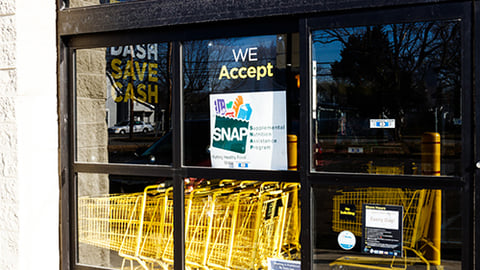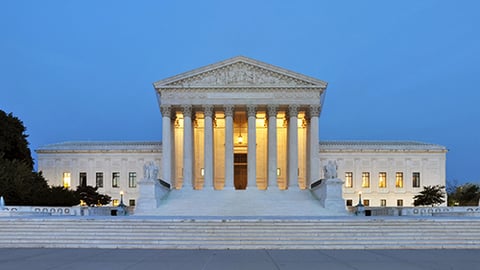SCOTUS Rules in FMI’s Favor in SNAP Case
The U.S. Supreme Court reversed a lower court’s ruling against the Food Marketing Institute (FMI) in its case Food Marketing Institute v. Argus Leader. In the case, FMI sought to protect the confidentiality of store-level sales data for retailers who participate in the Supplemental Nutrition Assistance Program (SNAP).
The Supreme Court’s opinion states, “At least where commercial or financial information is both customarily and actually treated as private by its owner and provided to the government under an assurance of privacy, the information is ‘confidential’ within the meaning of Exemption 4.” The Court concluded that the store-level SNAP data qualifies as “confidential” under this standard.
FMI President and CEO Leslie Sarasin offered the following comments on the Supreme Court’s decision to remand the case, saying: “We agree with the U.S. Supreme Court’s ruling today that a 45-year-old interpretation of what constitutes ‘confidential commercial and financial information’ required reexamination. Our industry’s commitment to the shopper remains constant amidst seismic marketplace shifts. The nation’s grocery stores have long kept confidential the amount consumers spend at individual stores whether through payment by cash, credit, debit or the Supplemental Nutrition Assistance Program, or SNAP. This store-level sales data undoubtedly must be considered confidential because its release would provide an unfair advantage to competitors.”
The National Grocers Association (NGA) President and CEO Peter Larkin, who testified as an expert witness at an earlier district trial for the case, also offered the following statement: “NGA welcomes the Supreme Court’s decision that will protect store-level SNAP sales data from public disclosure. NGA has maintained that a retailer’s SNAP store data should remain private because its release would harm competition in the food retail industry. Knowing that their confidential business information will remain protected by the government, independent supermarkets will continue to be strong partners in the SNAP food delivery system, serving the millions of American families who rely on domestic food assistance.”
The case involved whether the store-level SNAP redemption data is “confidential” under Exemption 4 of the Freedom of Information Act (FOIA). Exemption 4 protects from mandatory disclosure private parties’ “commercial or financial information” when that information, which the government happens to have in its possession, is “confidential.”
The opinion reverses a 1974 interpretation of that term, first articulated by the D.C. Circuit, that determined private information would not be deemed “confidential” unless its disclosure would cause “substantial competitive harm.” The Supreme Court today rejected that approach.
Ben Kappleman, a partner at the international law firm Dorsey & Whitney who specializes in intellectual property, trade secrets, patents, and trademarks against exploitation by competitors, infringers, and departing employees, weighs in on what this means for the grocery industry: "This decision simplifies the test for when commercial or financial information is shielded from a FOIA request. Businesses will have an easier time knowing whether the government will keep their confidential information private—either the government said it would, or not. People challenging FOIA denials can focus on simple questions—does the source of the information actually treat it as private, and did the government promise it would maintain that privacy? Those will probably be easier questions to answer than the more complicated 'substantial competitive harm' test the Supreme Court rejected. The Court didn’t decide what happens to confidential information when a business gives it to the government and the government doesn’t say anything about privacy. But this decision highlights the importance of understanding the government’s willingness to protect confidential information before a business discloses it."
FMI member companies operate nearly 33,000 retail food stores and 12,000 pharmacies. The trade organization has almost 500 associate member companies that provide products and services to the food retail industry.





